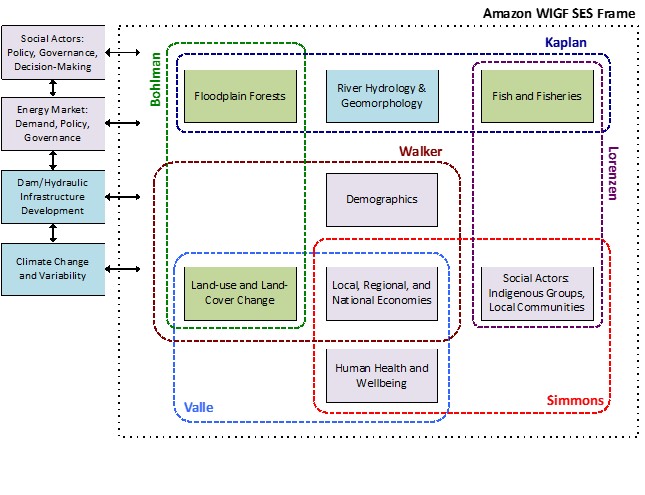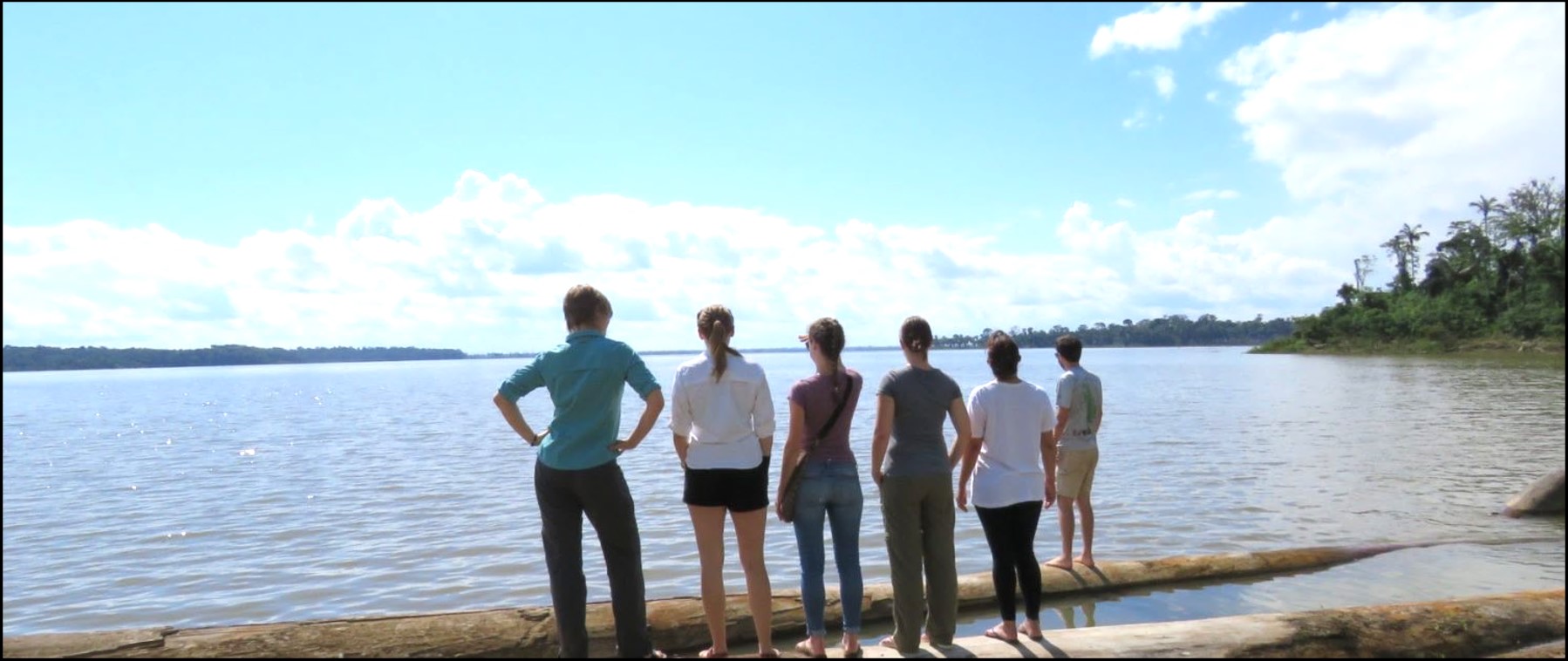The goal for the 2015 Water Institute Graduate Fellows cohort was to bring together Amazon Dams Network (ADN) faculty and graduate fellows from the biophysical and social sciences to investigate the complex and interconnected set of impacts brought about by the construction and operation of hydroelectric dams and associated infrastructure in the Amazon. The ADN was initiated in 2012 as an interdisciplinary effort to provide an integrated understanding of the two-way links between energy production, environmental conservation and human well-being in the Amazonian region. The program is hosted in the Tropical Conservation and Development Program in the Center for Latin American Studies, which accumulates more than 30 years of experience on training, research and capacity-building in the region. The faculty-student cohort collaboratively carried out research to fill critical knowledge gaps in a variety of interdisciplinary research themes:

A principal focus of the 2015 WIGF program was the academic training and professional development of a cadre of motivated and creative young scientists committed to seeking solutions to the growing set of complex, global challenges facing society. Through the program, fellows built three primary proficiencies: 1) competence in their research area; 2) the ability to work collaboratively across disciplines and to bridge the gap between academy and society to create new actionable knowledge and insight; and 3) an ability to communicate and teach complex topics to a global audience with a diversity of educational and cultural backgrounds. Students gained disciplinary proficiency though coursework and research, and developed and honed skills in collaboration, communication, and teaching through a set of integrative activities, including:
